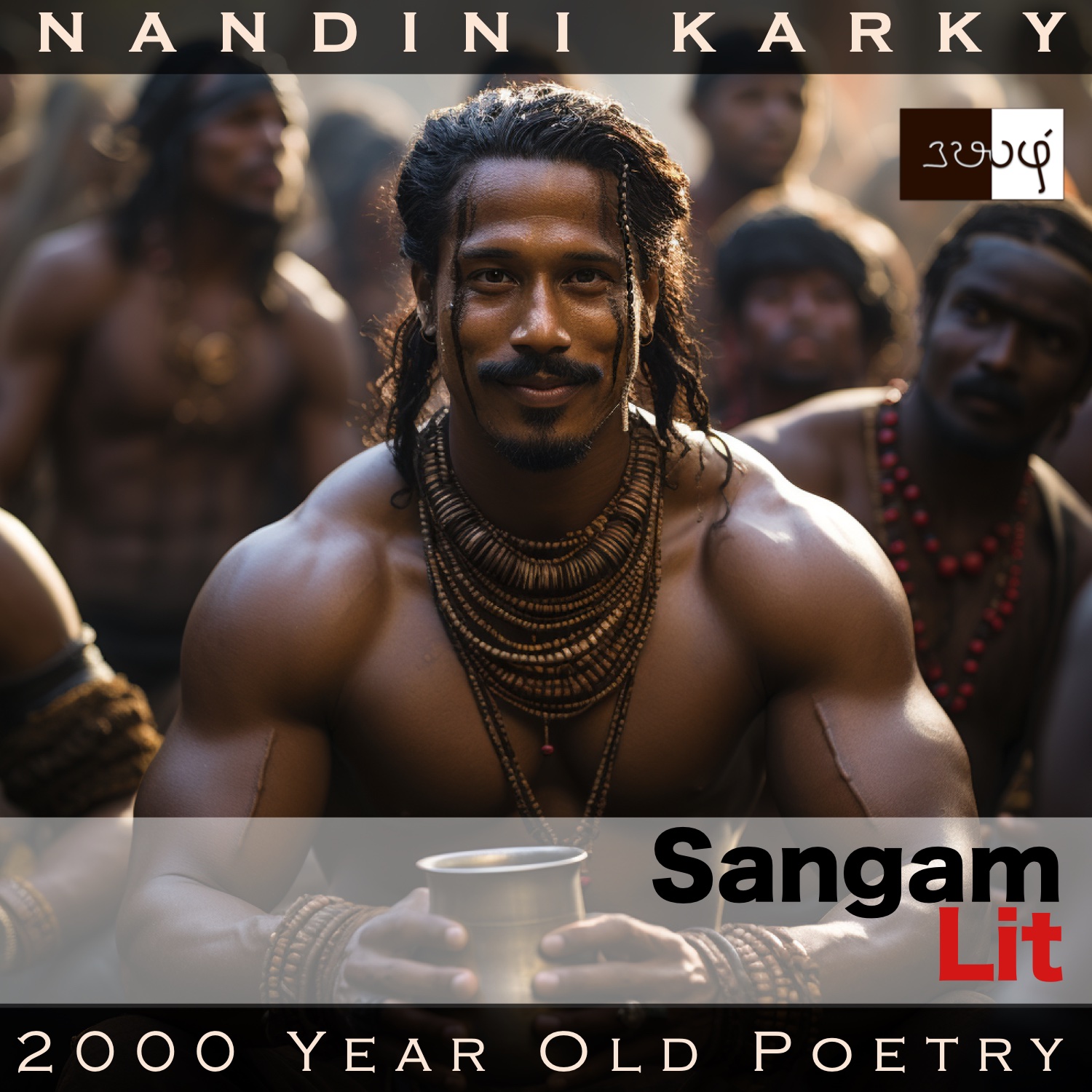Podcast: Play in new window | Download
Subscribe: Apple Podcasts | Spotify | Amazon Music | Android | iHeartRadio | TuneIn | RSS | More
In this episode, we listen to the nuanced words of a mother, as portrayed in Sangam Literary work, Puranaanooru 286, penned by the poet Avvaiyaar. The verse is situated in the category of ‘Karanthai Thinai’ or ‘Recapturing’ and talks about a soldier who has returned successfully from a battle.

வெள்ளை வெள் யாட்டுச் செச்சை போலத்
தன்னோர் அன்ன இளையர் இருப்பப்,
பலர் மீது நீட்டிய மண்டை என் சிறுவனைக்
கால் கழி கட்டிலில் கிடப்பித்,
தூ வெள் அறுவை போர்ப்பித்திலதே.
A tiny verse that has some startling content. The poet’s words can be translated as follows:
“Akin to a herd of white-hued goats, when many youngsters like him were there, surpassing those others, the bowl of toddy was extended especially to my son. But even that has not made him lie on a legless bed, covered with a pure white cloth!”
Let’s delve into the intricacies in these words. The poet starts by speaking in the voice of a mother whose son has come home after winning a war. She talks about a herd of goats that are known to stick together and then projects this image in parallel to that of the group of young men, who stood in support of a leader’s fight. This is to say they were so many and with not many differentiating characteristics. One of the members of this group was this mother’s son and she says how though he was one of many he was given a special place and preference by that leader as could be seen by the way the select bowl of toddy was given to him surpassing all others. And then that mother concludes with the words that even that special place did not leave her son lifeless on a bier with a white cloth over him.
How are we to take this statement from this Sangam mother? Is she delighted that no matter the special status given to her son, he did not go to the extent of losing his life for that leader and had somehow returned home to her safely or as some scholars seem to say that she’s actually lamenting that her son did not give his life for the leader! Even to consider the second option leaves me shellshocked. If indeed the latter is true and this poem is written to showcase the supposed bravery of a Sangam mother in wanting her son to give his life for the king and nation, I have to say this is one of those poems I cannot empathise or understand at all. It’s written deep in the DNA of a mother to protect her children above all else, and so this wishing away of a son, who has returned successfully does not make any sense but sounds like an inappropriate poetic license.
Since we have no way of knowing the tone of these words, I choose to think that this mother is feeling rather fortunate that her son has been saved from the clutches of death, even though his life was baited with that special preference accorded by his leader. This interpretation is what makes this woman sound not like the mouth-piece of the poet, who wants to convey the specific thought of the supposed bravery and determination of the woman’s warrior clan, but like a mother in real life!




Share your thoughts...